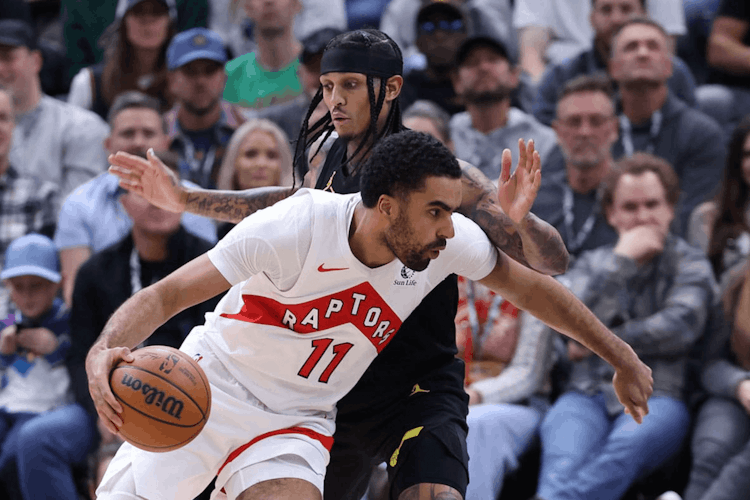- More Betting
Jontay Porter Ban: Why Legal Sports Betting Is the Solution, Not the Problem

The recent lifetime ban imposed on Toronto Raptors player Jontay Porter for betting on NBA games, including those involving his own team, has sparked conversations regarding the role of legal sports betting in professional sports. Many argue that the proliferation of online gambling in the US has facilitated such incidents, pointing fingers at the perils of easy access to betting platforms.
However, a closer examination reveals that Porter's case actually underscores the effectiveness of legalized and regulated sports betting in safeguarding the integrity of the game.
Contrary to popular belief, legal sportsbooks play a pivotal role in upholding the integrity of sports leagues by collaborating closely with teams and leagues to identify and investigate any suspicious betting activities. In Porter's case, it was the vigilant oversight of legal sportsbooks that detected his illicit behavior, prompting swift action to preserve the integrity of the NBA.
Breaking: The NBA announced that Jontay Porter has received a lifetime ban for violating the league's gaming rules. pic.twitter.com/fIgEZy88Du
— ESPN (@espn) April 17, 2024
One of the key advantages of legal sports betting is the stringent monitoring mechanisms put in place to detect any irregularities. US sportsbooks employ sophisticated algorithms and dedicated teams to scrutinize betting patterns, flagging any unusual activity that could indicate potential match-fixing or insider betting. This level of surveillance extends beyond just players and coaches to encompass all personnel associated with the teams, ensuring that no one is immune to scrutiny.
Despite concerns, regulated online sports betting is actually the answer
Without the availability of legal online sports betting options, individuals inclined towards gambling would resort to offshore and unregulated markets, where oversight and accountability are virtually non-existent. Illegal bookmakers thrive in these unregulated environments, providing ample opportunities for players, coaches, and other team members to engage in clandestine betting activities without fear of detection. In such scenarios, the risk of match-fixing and manipulation of game outcomes skyrockets, posing a grave threat to the integrity of sports leagues.
The case of Jontay Porter serves as a stark reminder of the importance of legalizing and regulating sports betting to mitigate the risks associated with illicit gambling practices. By providing a safe and transparent platform for individuals to engage in responsible gambling, legal sportsbooks not only deter nefarious activities but also contribute to the overall integrity and fairness of professional sports.
Moreover, the revenue generated from legalized sports betting can be channeled back into sports leagues and communities, funding initiatives aimed at promoting sportsmanship, integrity education, and responsible gambling practices. By embracing legal sports betting, leagues can leverage these resources to bolster their efforts in combating corruption and ensuring that the spirit of competition remains untainted.
Critics may argue that legalizing sports betting normalizes gambling behavior and encourages individuals, including athletes, to indulge in risky betting practices. However, the reality is that gambling has been a pervasive aspect of society for centuries, and prohibition has only driven it underground, exacerbating the associated risks. Legalization, coupled with robust regulation and oversight, provides a framework to address these risks proactively, rather than turning a blind eye to them.
The case of Jontay Porter's lifetime ban underscores the vital role of legalized and regulated sports betting in safeguarding the integrity of professional sports. By providing a transparent and accountable platform for sports wagering, legal sportsbooks enable leagues to monitor and address any suspicious activities effectively. Moving forward, it is imperative for policymakers and sports organizations to embrace legalization as a proactive measure to protect the integrity and fairness of the games we love.
